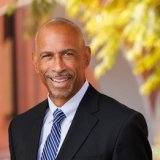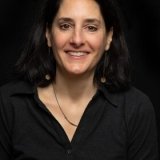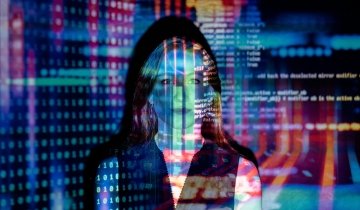
Education is implicated in many of the world’s problems today: from poverty and inequality, to the prevalence of ignorance related to the threats posed by climate change, disease, environmental degradation, to growing authoritarianism. However, education is also implicated as a potential solution to many of the problems we face.
USC Rossier’s Master Class was created to spur broad discussions that are central to the mission of the School among our students, faculty and staff. Like most academic institutions, we are siloed by our specializations. Our separations by programs and areas of academic focus, contribute to fragmentation and undermine our ability to be more impactful as a school. The Master Class has been created to counter these tendencies. This fall, the first classes will be taught by Dean Pedro A. Noguera and Professor Mary Helen Immordino-Yang.
Learn more:
- Teaching and learning to advance the needs and interests of humanity
- The transformative power of education
Master Class Session 1 on Sept. 19
How can education be used as a resource for addressing the major challenges facing the world today, and how might teaching and learning need to be changed for this to occur?
Dean Noguera explores this question in the first Master Class. A central premise of Dean Noguera’s session will be that the most powerful teaching is premised upon an extended dialogue between teacher and student. Drawing on the seminal work of Brazilian educator Paulo Friere, the class will explore how teachers can use listening, dialogue, and empathy to engage students in an educational process based upon collective inquiry and learning. In many respects, this involves a departure from positioning the teacher as the “all knowing expert”, to envisioning teachers as facilitators and guides who reject the idea of teaching students what to think, and embrace their role in supporting students’ development of intellectual capacities and dispositions—teaching how and when to think. If education is to play a role in advancing knowledge and solving problems, the educational process must nurture interpersonal engagement and perspective-taking, curiosity, critical thinking, disciplinary knowledge, ethics and, along the way, a love of learning.
Video and additional resources
- Session 1 video
- Presentation slides
- Additional readings: Situated Learning: Legitimate Peripheral Participation (Lave, J.; Wenger, E.) and Pedagogy of the Oppressed (Freire, P.)
Master Class Session 2 on Oct. 10
Solving the Frankenstein problem: Why all learning is social, emotional, cognitive and cultural to the brain.
Professor Immordino-Yang will revisit this central premise from a transdisciplinary developmental and neurobiological perspective. Deep diving into the processes of meaning-making and memory in the mind and brain, she will share data from diverse Los Angeles area students and teachers that challenge our traditional notions of the dichotomy between emotion and cognition, along the way highlighting the power of culture, social experience, and reflective thinking in human personal, intellectual and civic development and wellbeing. She will argue for a Copernican Shift that recenters education around teachers’ and students’ experiences of the thinking process—what it feels like to think, rather than around standardized outcomes and the interventions that aim to impact them.
Video and additional resources
- Session 2 video
- The brain basis for integrated social, emotional and academic development
- Nurturing nature: How brain development is inherently social and emotional and what this means for education
- Default and executive networks’ roles in diverse adolescents’ emotionally engaged construals of complex social issues
- Rest is not idleness: Implications of the brain’s default mode for human development and education
Master Class Session 3 on Oct. 24
Teaching to empower and disrupt
Dean Pedro A. Noguera led a conversation about how impactful teaching can advance our common humanity.
Video and additional resources
- Session 3 video
- Possible futures: Toward a new grammar of schooling
- Truth, Love, & Racial Literacy | Yolanda Sealey-Ruiz | TEDxPenn
Master Class Session 4 on Nov. 14
Video and additional Resources
Master Class Session 5 on Nov. 28
Master Class Fall Series Schedule
- Session 1, Sept. 19
- Session 2, Oct. 10
- Session 3, Oct. 24
- Session 4, Nov. 14
- Session 5, Nov. 28
Registration for each session will open after the previous class has been held.





